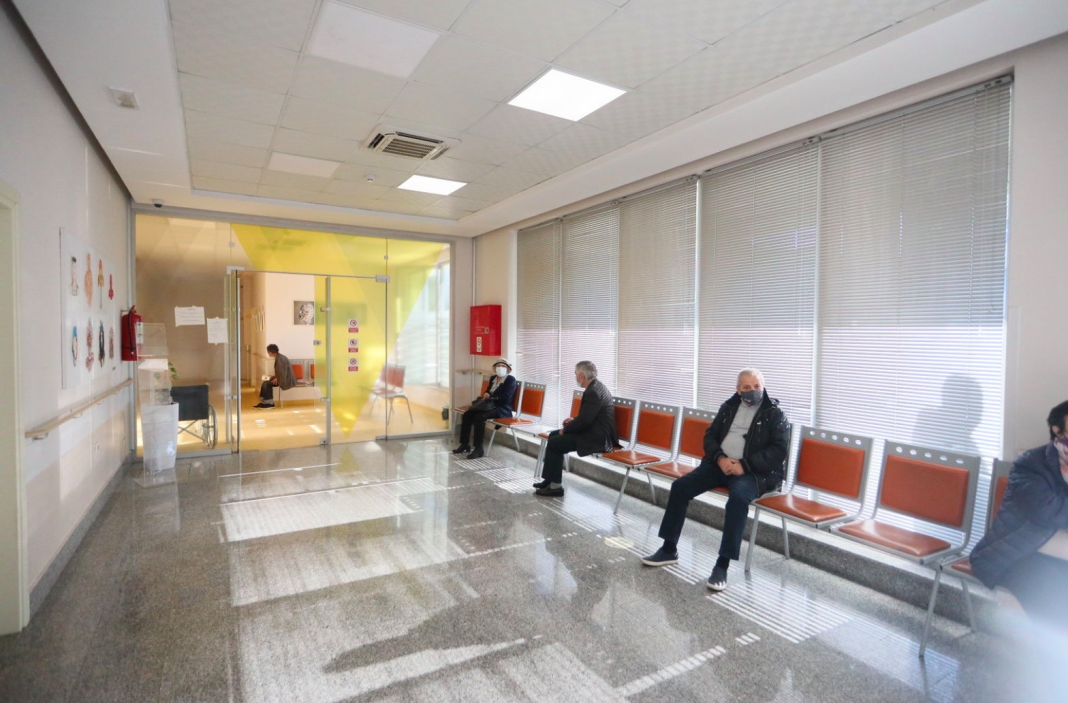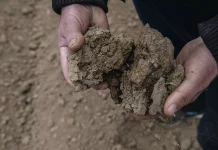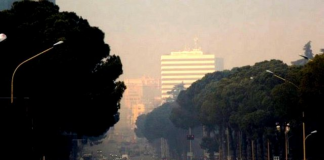Budget constraints, corruption, and poor management compel cancer patients to face tough decisions at the Oncology Hospital of the University Hospital Center Mother Teresa in Tirana.
Ilda Hoxha
E.B., a physician, has been navigating difficulties at the Oncology Hospital of the University Hospital Center Mother Teresa in Tirana (QSUNT) for the past two years, alongside her 70-year-old father-in-law who has been diagnosed with cancer.
Despite healthcare being legally free for pensioners in Albania, she explains that they are compelled to buy prostate treatment medications out of pocket, costing 300 Euros per injection every three months.
‘They say it’s not provided for people over 70 due to a directive from the Ministry, but I’ve never seen any such order in writing,’ she says.
The oncology staff proposed castration as a ‘solution’ for her father-in-law. While castration is an option for treating prostate cancer, she argued that it seemed ‘inhumane’ considering the condition can also be treated with the medication Goserelin.
‘It’s not acceptable to tell a 70-year-old man, ‘go get castrated,’” she stated. ‘This is outrageous,’ E.B. added, noting that the oncologists simply asked, ‘What’s the problem?’
The difficulties faced by the doctor and her father-in-law in obtaining medication are not unique to patients at the Oncology Hospital.
Data collected by Faktoje through an online survey of the hospital’s patients reveal that 64% of them have been forced to pay out of pocket for the necessary medications for tumor treatment.
Eglantina Bardhi, head of the ‘Together for Life,’ organization attributes the medication shortages to corruption and mismanagement within Albania’s healthcare system.
‘The primary issue is an underfunded healthcare system,’ she said, adding that the second issue is the responsible institutions—the Ministry of Health and hospital administrations—that fail to manage the limited funds effectively. The third issue is the high level of corruption in the healthcare system,’ Bardhi emphasized.
Albania’s healthcare budget is small compared to its Gross Domestic Product (GDP), and according to the head of ‘Together for Life,’ this leads to inadequate healthcare services for patients.
‘For example, in oncology, very few medications are procured,’ said Bardhi, noting that ‘this service requires millions of Euros in investment for medications.’
‘Our healthcare budget is lower than that of all other countries in the region, accounting for about 3% of GDP,’ Bardhi explained.
Lack of Investment
According to the 2023 annual report of the Mandatory Health Insurance Fund, 263 million Euros were spent on funding public hospitals. The main burden falls on the University Hospital Center Mother Teresa (QSUNT), which treated 169,608 patients. However, not all patients treated at QSUNT are satisfied with the services provided.
Etmira’s mother was diagnosed a year ago with cholangiocarcinoma, a rare type of cancer. She was treated for a year at the Oncology Hospital in QSUNT but had her surgery in Turkey.
‘In Albania, they wouldn’t touch her,’ Etmira explained. Despite her complaints about the hospital’s conditions and management, she considers herself fortunate that her mother had a good doctor who was always willing to help.
‘It’s a nightmare just finding a place there,’ Etmira said, highlighting that the problems begin with the security guard at the entrance. Since the Oncology Hospital does not offer immunotherapy, she explained that after her mother’s surgery in Turkey, she had to arrange for continued treatment in Italy.
The 2023 report by the State Supreme Audit revealed that the Oncology Hospital faced shortages of chemotherapy agents due to delays in procurement, with shortages ranging from 12 to 34 days, contrary to the prescribed treatment protocols.
Dr. Ilir Alimehmeti pointed out that the issues at the Oncology Hospital are numerous and persistent. He noted that centralizing all specialized oncology services in a single facility distances them from the patients.
‘Low investment in cancer treatment, a lack of human resources, inadequate infrastructure, shortages of chemotherapy drugs, and insufficient radiotherapy equipment,’ Alimehmeti listed the problems for Faktoje.
Under-the-Table Payments
In June, a scandal erupted at the Oncology Hospital, revealing that a group of doctors, pharmacists, and even senior QSUNT officials were involved in ‘deals’ impacting the lives of cancer patients, causing significant public backlash.
Investigations by the Tirana Prosecutor’s Office uncovered that doctors were pressuring cancer patients to receive treatment at private clinics and purchase medications costing thousands of euros.
A survey conducted by Faktoje through the ‘Engaged Community Reporting’ (ECR) app found that 64% of respondents—including current and former patients and their families—admitted to making under-the-table payments to medical staff, often amounting to thousands of euros.
Eglantina Bardhi noted that this issue is not new and extends beyond the Oncology Hospital.
‘This is a known issue, not just within the Oncology service at QSUNT but also in other essential services,’ Bardhi said, adding that she has been documenting these problems for 15 years.
‘We have also organized protests in support of women with cancer to expose this corruption,’ she added.
Lack of communication
Rezarta Agolli’s husband, who worked for two decades in Albania’s public sector, was forced to seek cancer treatment in Italy after being diagnosed a year ago.
‘It was a scandal at the Oncology Hospital,’ recalled Agolli. ‘There was no communication at all; doctors failed to coordinate with each other and with the patient,’ she explained.
Data from Faktoje’s survey reveal that more than half of the patients and former patients at the Oncology Hospital were ‘dissatisfied’ or ‘very dissatisfied’ with the communication from doctors and hospital staff.
Eglantina Bardhi believes that resolving these issues requires a comprehensive reform of the healthcare system, beginning with increased budgetary support and eliminating corruption.
‘The treatment of medical staff also needs to change,’ she said. ‘We need to change patients’ mindset and stop giving money to doctors,’ Bardhi concluded.
Dr. Ilir Alimehmeti warned that the healthcare system is in a state of crisis and stressed the urgent need for a comprehensive task force composed of top experts from both Albania and abroad.
This expert group, according to Alimehmeti, should be tasked with overseeing and evaluating progress in cancer prevention, early detection, treatment, and palliative care. Additionally, the group should develop, implement, and supervise a short-term plan for tackling cancer, in line with the recommendations and sustainable objectives of the EU and WHO.










